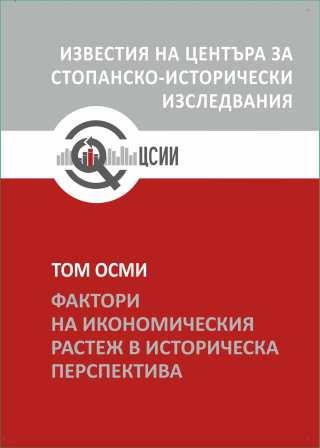ОБРАЗОВАНИЕ И ИКОНОМИКА В БЪЛГАРИЯ 1879–1912 ГОДИНА
EDUCATION AND ECONOMY IN BULGARIA 1879–1912
Author(s): Pencho D. PenchevSubject(s): History, Economy, Cultural history, National Economy, Economic history, History of ideas, Social history, Modern Age, Recent History (1900 till today), Special Historiographies:, Marketing / Advertising, Human Resources in Economy
Published by: Център за стопанско-исторически изследвания
Keywords: education; free; compulsory; social benefits; social costs
Summary/Abstract: The education system after the Liberation of Bulgaria in 1879was nationalized and centralized. As a result, the number of literate Bulgarians increased, but the system became detached from the social necessities and began to work in its own favor. At least for the considered period of 1879–1912, no visible positive consequences of the government education policy on the overall economic development of the country can be established, i.e. education fails to become a factor accelerating economic modernization. The underdeveloped agrarian economy of Bulgaria turned the primary schools literally into tombs for teachers and students, while the specialized professional schools produced mainly civil servants and clients of the corrupt political system. Compulsory education in a certain sense emerges as a tax that does not bring a prospect of improvement in the material situation of ordinary people, but strengthens their poverty. The general conclusion of the historical reconstruction is that in the conditions of post-liberation Bulgaria, education perhaps brings some social benefits, but the facts convincingly show that the thesis of its universal benefit cannot be accepted.
Journal: Известия на Центъра за стопанско-исторически изследвания
- Issue Year: VIII/2023
- Issue No: 1
- Page Range: 118-129
- Page Count: 12
- Language: Bulgarian

